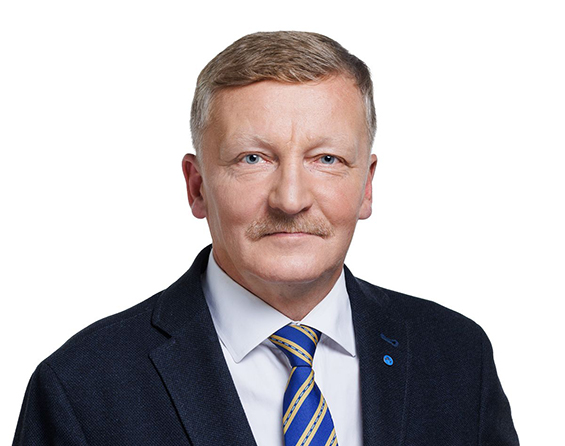
AI Profiileerimine: Andrus Seeme
Päevakorrapunkte: 19
530/530 profiling (100.0%)
Sõnavõtte kokku: 23
Analüüsi periood: 2024-01-16 - 2025-09-24
Poliitiline positsioon
Poliitiku positsioon on järjepidevalt tulemus- ja poliitikapõhine, kus fookus on regulatiivsete raamistike (nt jahindus, energiapoliitika) ja riigivalitsemise efektiivsuse (bürokraatia, kokkuhoiumeetmed) detailide hindamisel. Kõneleja on mõõdukalt konstruktiivne kriitik, kes toetab algatusi (nt regionaalne kultuur, haldusreform), kuid nõuab konkreetseid andmeid ja tõendeid nende praktilise kasu ja tulemuslikkuse kohta. Korduvad teemad hõlmavad riigi haldussuutlikkust, julgeoleku strateegilist piisavust ning tugevat rõhuasetust regionaalpoliitikale, eriti kohalike omavalitsuste (KOV) rahastamise õiglasele tasakaalule ja teenuste regionaalsele kättesaadavusele.
Teemade ekspertiis
Poliitiku ekspertiis on kontsentreeritud riigihalduse efektiivsuse, regionaalarengu ja detailsete sektoriregulatsioonide (eriti jahindus, keskkond ja põllumajandus) valdkondadesse. Ta demonstreerib sügavat teadlikkust poliitika rakenduslikust ja logistilisest küljest, keskendudes halduskoormuse vähendamisele, regionaalse kättesaadavuse parandamisele (haridus, kultuur, jäätmekäitlus) ning seaduse kitsaskohtade lahendamisele. Asjatundlikkust toetab järjepidev nõue konkreetsete kvantitatiivsete andmete, statistika ja täpsete eelarvenumbrite (nt transpordi ja maksukoormuse osas) järele, mis viitab soovile tegeleda tehniliste ja juriidiliste detailidega.
Retoorriline stiil
Poliitiku retooriline stiil on järjepidevalt äärmiselt formaalne ja lugupidav, mida rõhutab korduv ametlike pöördumiste kasutamine ("lugupeetud juhataja," "hea minister"). Stiil on valdavalt loogikapõhine, analüütiline ja küsimustele keskenduv, otsides selgitusi rakendusprotsesside, andmete ja poliitiliste otsuste tagajärgede kohta. Kuigi toon on professionaalne ja sageli konstruktiivne (väljendades tänu ettekannete eest), kasutatakse retoorikat ka skeptitsismi ja mure (nt regionaalpoliitika ja bürokraatia) väljendamiseks, kuid seda tehakse alati faktidele tuginedes ja emotsionaalseid apelle vältides.
Tegevusmustrid
Poliitiku tegevusmuster on regulaarne, kuid mitte igapäevane, keskendudes valdavalt parlamendi kontrollifunktsiooni täitmisele. Esinemiste rütm on koondunud, ilmutades kas regulaarset iganädalast osalemist (nt 09.2024) või intensiivseid lühikesi purskeid (nt 05.2025, 09.2025), kus esitatakse mitu küsimust lühikese aja jooksul. Domineeriv suhtlusvorm on küsimuste esitamine ministritele ja peaministrile ametlikel istungitel, mis rõhutab sihipärast osalemist seadusandlikus järelevalves ja seaduseelnõude aruteludes.
Opositsiooni hoiak
Poliitiku vastasseis valitsusele ja ministritele on järjepidevalt poliitika- ja protseduuripõhine, vältides isiklikke rünnakuid. Kriitika keskendub peamiselt administratiivsete otsuste (nt asutuste sulgemine, bürokraatia kasv) majandusliku ja menetlusliku põhjendatuse ning valitsuse seatud eesmärkide (kokkuhoid, tempo, maksukoormus) teostatavuse ja tagajärgede kahtluse alla seadmisele. Vastasseis on suunatud pigem strateegilisele planeerimisele ja menetluslikele lünkadele, mitte poliitiliste vastaste isikutele.
Koostööstiil
Poliitiku koostööstiil on järjepidevalt konstruktiivne, viisakas ja formaalne, rõhutades lugupidavat dialoogi nii ministrite kui ka ettekandjatega ning järgides protseduurireegleid. Ta on selgelt avatud kompromissidele ja ühisele probleemilahendusele, otsides teavet ja selgitusi eelnõude tehniliseks täiendamiseks ja rakendamise toetamiseks, mitte poliitika vaidlustamiseks. Koostöövalmidus väljendub ka valmisolekus jätkata ja toetada kolleegide algatatud teemasid, viidates koordineeritud tegevusele seadusandliku kogu sees.
Regionaalne fookus
Poliitiku fookus on kahetine, jagunedes selgelt üleriigiliste/rahvusvaheliste teemade ning spetsiifiliste regionaalsete ja lokaalsete probleemide vahel. Regionaalse fookuse esilekerkimisel on see tihti väga konkreetne ja kriitiline, keskendudes riigi kohaloleku vähenemisele maapiirkondades, tuues korduvalt esile näiteid Põlvamaa ja Kagu-Eesti piirkondade kohta. Olulised regionaalsed teemad hõlmavad kohalike omavalitsuste (KOV) võimekust pakkuda teenuseid (kultuur, haridus) ja hallata infrastruktuuri (teehooldus), rõhutades vajadust riigi toetuse järele kohalikul tasandil.
Majandusvaated
Poliitiku majandusvaateid iseloomustab tugev pro-ettevõtluslik hoiak, mis väljendub järjekindlas toetuses regulatiivse ja bürokraatliku koormuse vähendamisele, et parandada ettevõtluskeskkonda. Fiskaalse vastutuse osas rõhutab poliitik vajadust kokkuhoiu ja kulude läbipaistvuse järele, seades kahtluse alla riikliku raiskamise ja väljendades muret kõrge maksukoormuse pärast. Samas toetatakse sihipäraseid riiklikke investeeringuid regionaalarengusse, keskkonnainfrastruktuuri ja kohalike omavalitsuste teenuste rahastamisse, mis viitab soovile stimuleerida majanduskasvu majanduslikult keerulistes piirkondades.
Sotsiaalsed küsimused
Poliitiku sotsiaalvaldkonna fookus on tugevalt regionaalne, rõhutades teenuste – eriti hariduse, kultuuri ja sotsiaalteenuste – kättesaadavust ja ligipääsetavust piirkondades. Ta kritiseerib tsentraliseerimist, mis halvendab kohalikku teenindusvõrku, tuues esile maakondlike hariduskeskuste kontseptsiooni ja rahvaraamatukogude rolli positiivse sotsiaalteenusena. Lisaks regionaalsetele küsimustele on käsitletud laiemat julgeolekutunnetuse küsimust ning ilmnenud huvi keskkonnakaitse ja jahinduse regulatsioonide vastu. Puuduvad andmed seisukohtade kohta traditsioonilistes sotsiaalsetes kuumades teemades (nt abordi, LGBTQ+ või immigratsiooni küsimused).
Seadusandlik fookus
Poliitiku seadusandlik fookus on valdavalt suunatud valitsuse tegevuse järelevalvele, poliitika elluviimise kontrollile ja finantsotsuste põhjendatuse küsitlemisele, tegutsedes peamiselt kontrollija ja selgituste nõudjana. Sisulistest teemadest domineerivad maaelu, jahinduse detailregulatsioonid ja keskkonnakaitse, kusjuures kõneleja on aktiivne toetaja spetsiifiliste regulatiivsete kitsaskohtade lahendamisel ja bürokraatia vähendamisel. Oluline prioriteet on ka regionaalsete toetusprogrammide (nt Kagu-Eesti meede) ja üleriigiliste teenuste (nt jäätmekogumine) kättesaadavuse tagamine.